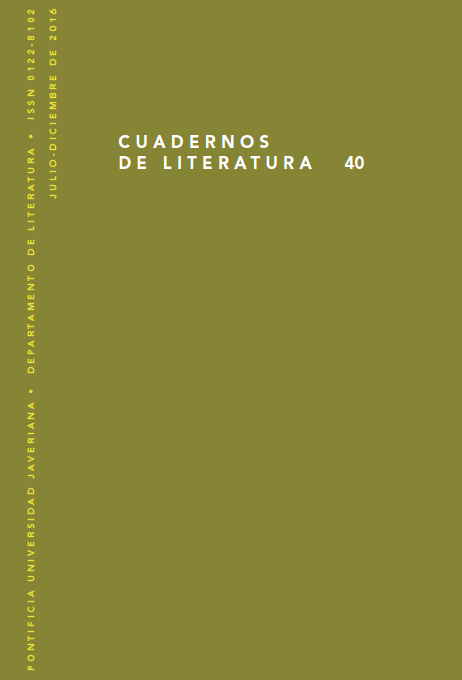Abstract
El paso de la producción al consumo de las cosas constituye un cambio de paradigma de gran significación para la cultura material. Con ello, la producción de objetos acaba convirtiéndose en fin en sí mismo y el consumo se erige en ley fundamental de las sociedades actuales. En este texto trataré de mostrar cómo, frente lo que podría definirse como un discurso de la abundancia preponderante en las ficciones latinoamericanas de finales del siglo pasado, ya en el siglo XXI empieza a vislumbrarse un imaginario donde se impone la escasez como atmósfera omnipresente. Analizaré cuatro novelas recientes para mostrar esta evolución, tratando de indagar en las causas y la significación histórica de este cambio de paradigma.
Cuadernos de Literatura is registered under a Creative Commons Attribution 4.0 International Public License. Thus, this work may be reproduced, distributed, and publicly shared in digital format, as long as the names of the authors and Pontificia Universidad Javeriana are acknowledged. Others are allowed to quote, adapt, transform, auto-archive, republish, and create based on this material, for any purpose (even commercial ones), provided the authorship is duly acknowledged, a link to the original work is provided, and it is specified if changes have been made. Pontificia Universidad Javeriana does not hold the rights of published works and the authors are solely responsible for the contents of their works; they keep the moral, intellectual, privacy, and publicity rights.
Approving the intervention of the work (review, copy-editing, translation, layout) and the following outreach, are granted through an use license and not through an assignment of rights. This means the journal and Pontificia Universidad Javeriana cannot be held responsible for any ethical malpractice by the authors. As a consequence of the protection granted by the use license, the journal is not required to publish recantations or modify information already published, unless the errata stems from the editorial management process. Publishing contents in this journal does not generate royalties for contributors.


